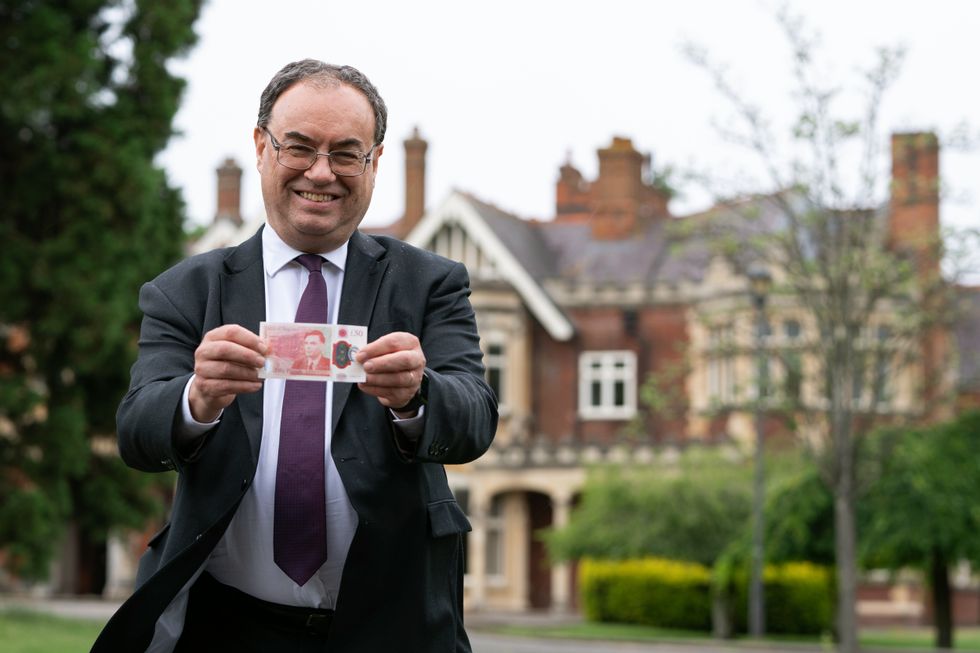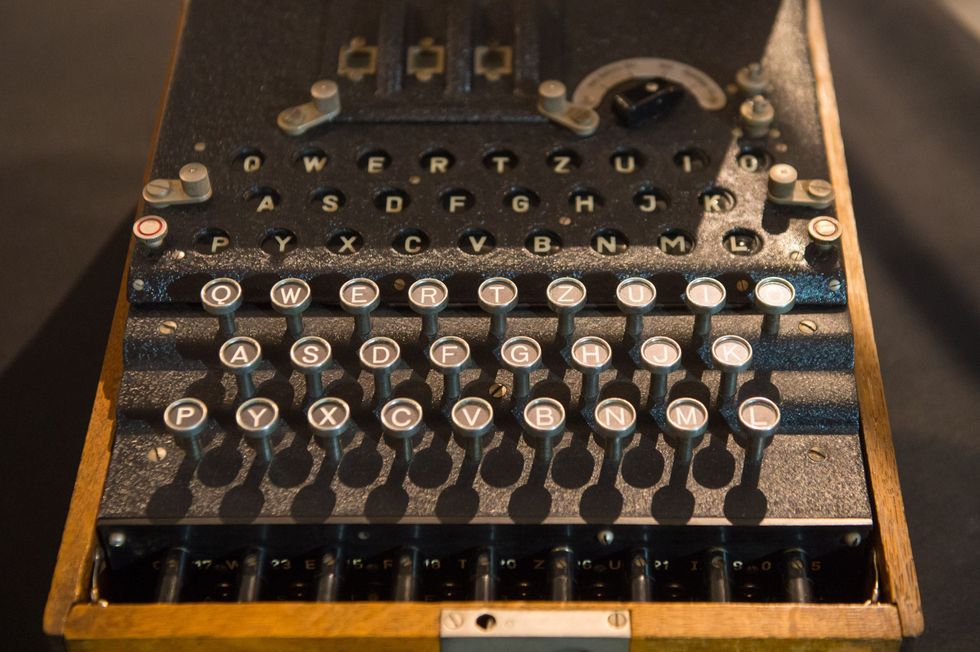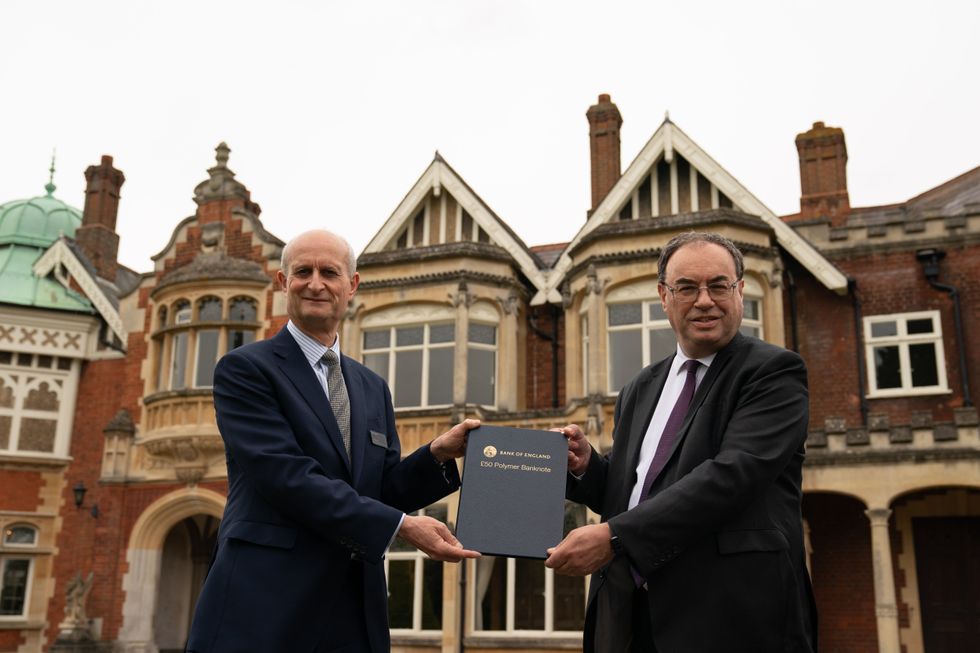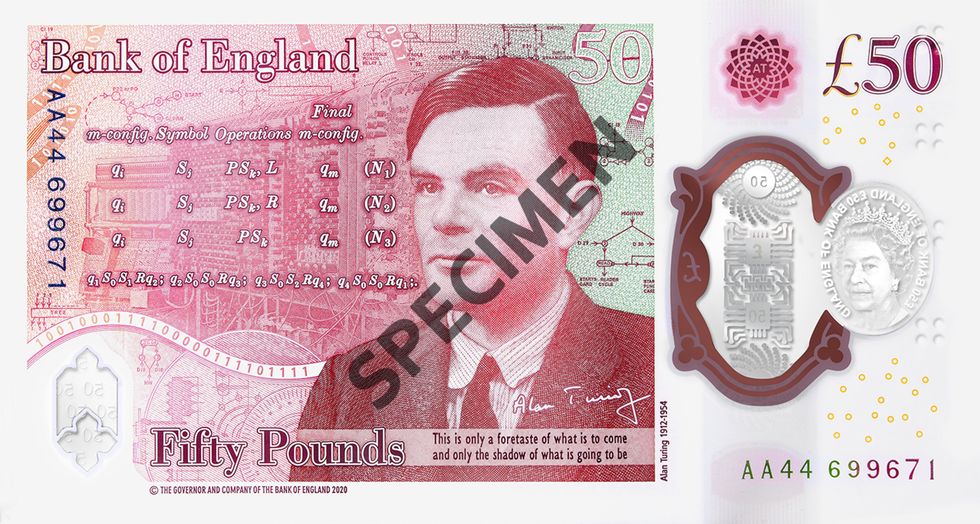News
Vicky Shaw
Jun 22, 2021
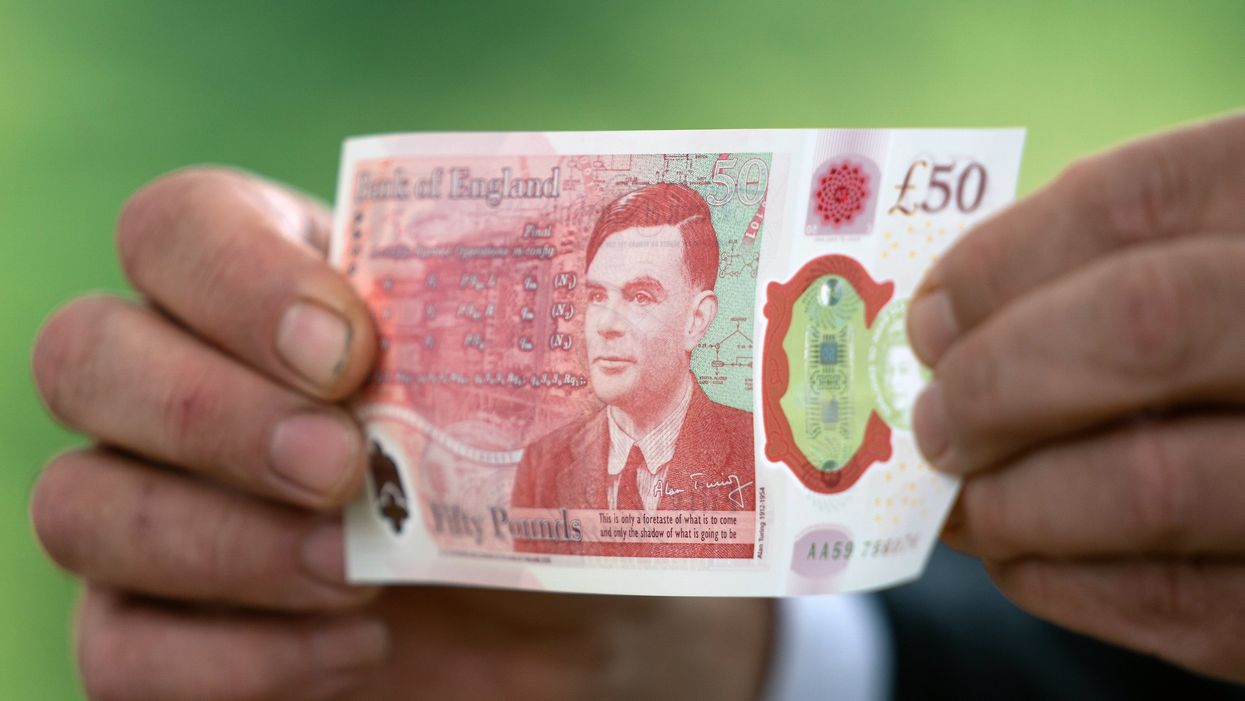
The new £50 note
PA Wire
The Alan Turing £50 banknote has started to enter circulation, coinciding with the Bletchley Park codebreaker’s birthday.
The new polymer Bank of England note will become available in bank branches and at ATMs in the coming days and weeks.
Celebrating Mr Turing’s life, the Bank of England was also flying the Progress Pride flag above its building in London’s Threadneedle Street on Wednesday.
Often considered to be the father of computer science, Mr Turing played a pivotal role in breaking the Enigma code and his legacy has had a lasting impact on the way we live today.
Cracking the Enigma code is said to have helped to shorten the Second World War by at least two years – saving millions of lives.
The Enigma enciphering machine, adopted by the German armed forces to send messages securely, was believed to be unbreakable.
Mr Turing was part of an Enigma research section working at Bletchley Park in Buckinghamshire.
The first wartime Enigma messages were cracked in January 1940 and Enigma traffic continued to be broken routinely for the remainder of the war.
Speaking at Bletchley Park, Bank of England Governor Andrew Bailey said: “Our banknotes celebrate some of our country’s most important historical figures.
“That’s why I am delighted that Alan Turing features on the new polymer £50 note.
Placing him (Alan Turing) on this new banknote is a recognition of his contributions to our society, and a celebration of his remarkable life
Bank of England Governor Andrew Bailey“Having undertaken remarkable codebreaking work here at Bletchley Park during the Second World War, he went on to pioneer work on early computers, as well as making some groundbreaking discoveries in the field of developmental biology.
“He was also gay and was treated appallingly as a result. Placing him on this new banknote is a recognition of his contributions to our society, and a celebration of his remarkable life.”
Born on June 23 1912, Mr Turing studied mathematics at King’s College, University of Cambridge, gaining a first-class honours degree in 1934. He was elected a Fellow of the College.
In 1936 his work On Computable Numbers is seen as giving birth to the idea of how computers could operate.
His “Turing test” also examined the behaviour necessary for a machine to be considered intelligent – the foundation for artificial intelligence.
The wartime hero’s later life was overshadowed by a conviction for homosexual activity, which was later considered unjust and discriminatory.
Mr Turing was convicted of gross indecency for his relationship with a man. His conviction led to the removal of his security clearance and meant he was no longer able to work for Government Communications Headquarters (GCHQ).
He was chemically castrated following his conviction in 1952 and died in 1954 at the age of 41.
He was later given a posthumous royal pardon.
The new polymer £50 note contains advanced security features, completing what the Bank described as its most secure set of banknotes yet.
The note will join the Sir Winston Churchill £5, the Jane Austen £10 and the JMW Turner £20, meaning all Bank of England banknotes are now available in polymer.
The Bank also said that September 30 2022 will be the last day people can use its paper £20 and £50 notes. After that, the paper notes will no longer be legal tender, so people should spend them or deposit them at their bank beforehand.
The Bank of England’s Chief Cashier, Sarah John, said: “The polymer £50 note is the most secure Bank of England banknote yet, and the features of the note make it very difficult to counterfeit.
“All of our polymer banknotes can be checked by looking for two key security features: a hologram which changes image; and see-through windows. So, if you can check one denomination of banknote, you can check them all.
“The new £50 notes, like the polymer £10 and £20 notes, contain a tactile feature to help vision impaired people identify the denomination.”
We are going to issue the new £50 note on 23.06.21, which is Alan Turing’s birthday. Curiously, the date adds up to… https://t.co/M3RoRFH0rq— Bank of England (@Bank of England) 1624287096
The Bank of England Museum has also launched an online exhibition to coincide with the Turing £50 banknote entering circulation.
Cash use has fallen sharply during the coronavirus pandemic, with several stores discouraging customers from using this payment method.
The number of cash payments made last year plunged by 35%, according to recent figures released by trade association UK Finance.
Coins and banknotes were used for 17% of all payments in the UK last year, while 27% of payments were contactless, UK Finance’s figures showed.
Top 100
The Conversation (0)
